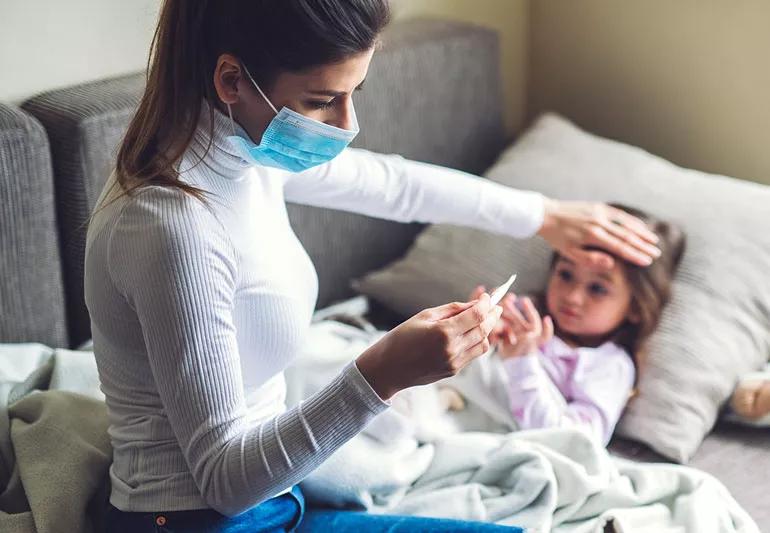The short answer from a family medicine physician

Image content: This image is available to view online.
View image online (https://assets.clevelandclinic.org/transform/48eb1be1-66d3-418a-9b66-96f86a6e0cd9/covidSickFamilyMember-1214592994-770x553-1_jpg)
Woman taking her child's temperature.
A: It’s not 100% guaranteed that just because one person in the household gets the virus that everybody else is going to. That doesn’t mean it can’t or won’t happen, but it’s not universal that everybody is going to get sick when COVID-19 is in your house.
Advertisement
Cleveland Clinic is a non-profit academic medical center. Advertising on our site helps support our mission. We do not endorse non-Cleveland Clinic products or services. Policy
However I do think it comes down to basic conscientiousness. I think people who are observing appropriate protection measures outside of their home are also probably doing the same at home, especially if someone is already sick. These are things like washing your hands, wearing a mask and being aware of physical distance (like not talking right in someone’s face). It’s also important to clean high-touch surfaces with disinfectants and limit physical (not emotional) interaction with the person who is sick.
If somebody in your house does test positive for the virus, we encourage them to stay in a separate room and use a different bathroom if they can, but we also know that not everybody’s household is set up for that. In those cases, do your best to stay away from the person who is sick and everyone should wear a face mask when they interact.
It’s also worth noting that if someone in your household tests positive for COVID-19 (or is suspected to have it), to make sure that vulnerable and high-risk house members avoid caring for whoever is sick. Everyone in the home should also quarantine (even if you don’t have symptoms) to avoid spreading the virus to school, work or the store.
— Family medicine physician Donald Ford, MD, MBA.
Advertisement
Advertisement

Delivered every Tuesday!
Sign up for our Health Essentials emails for expert guidance on nutrition, fitness, sleep, skin care and more
It's a letter about the news!
Learn more about our editorial process.
Advertisement
The short answer: It’s complicated, but the basic care precautions still prevail, like washing your hands and isolating if you’re sick
They can feel like a typical headache or a migraine headache, but the pain can last for weeks to months
Any large social gathering — from a family birthday party to an indoor music concert — has the potential to spread serious infection
It’s important to connect with a healthcare provider, get quality sleep and balance your activities with your energy levels
Just like the flu, COVID-19 will continue to evolve every year
The duration varies, but symptoms can linger for a few days up to a couple weeks or more
Vaccination is best for prevention, but if you get sick with COVID-19, treatments are available
The virus lives best in humans, but it can last on hard surfaces, like doorknobs and railings
Type 2 diabetes isn’t inevitable with these dietary changes
Applying a hot or cold compress can help with pain
Pump up your iron intake with foods like tuna, tofu and turkey